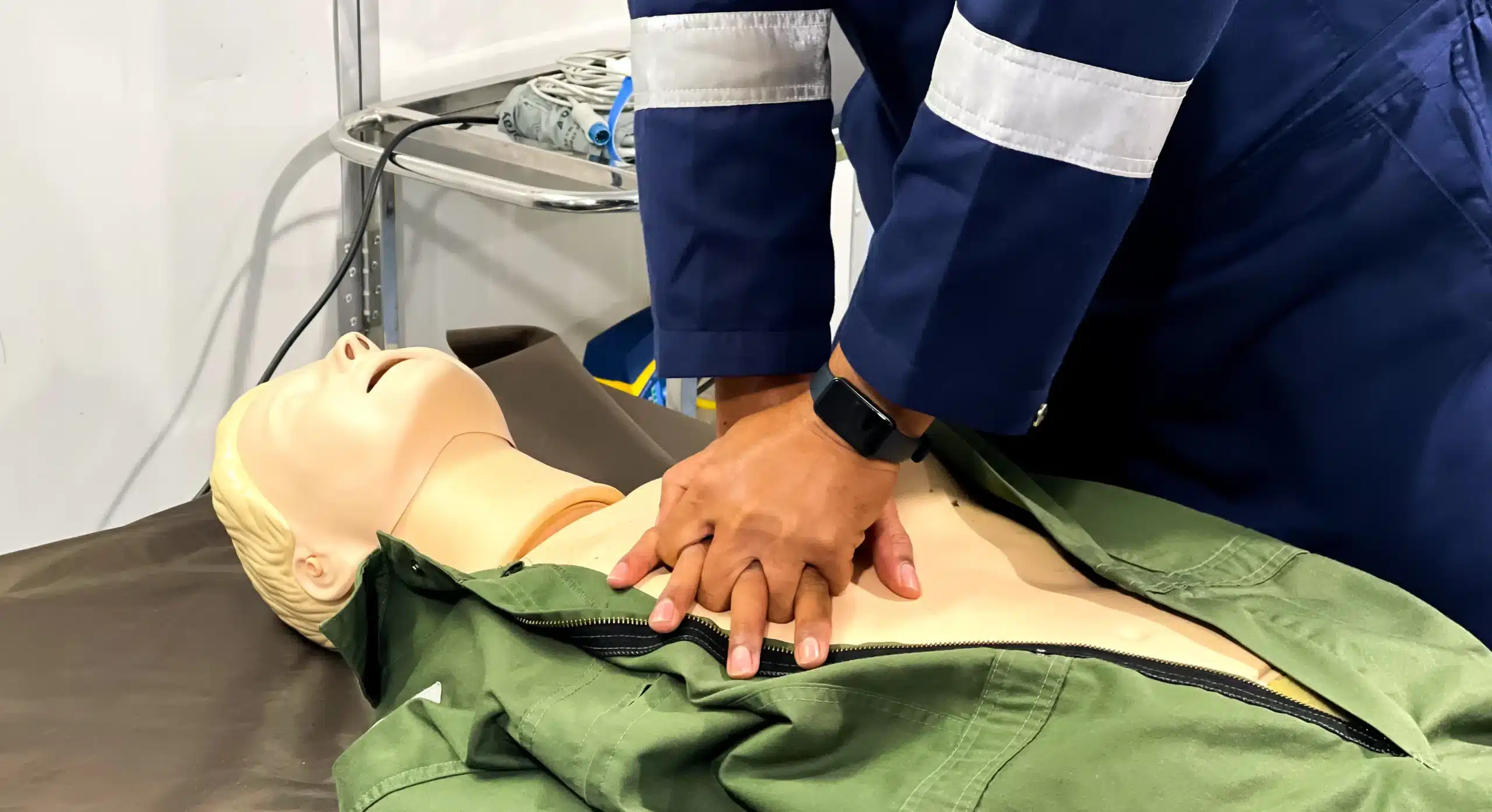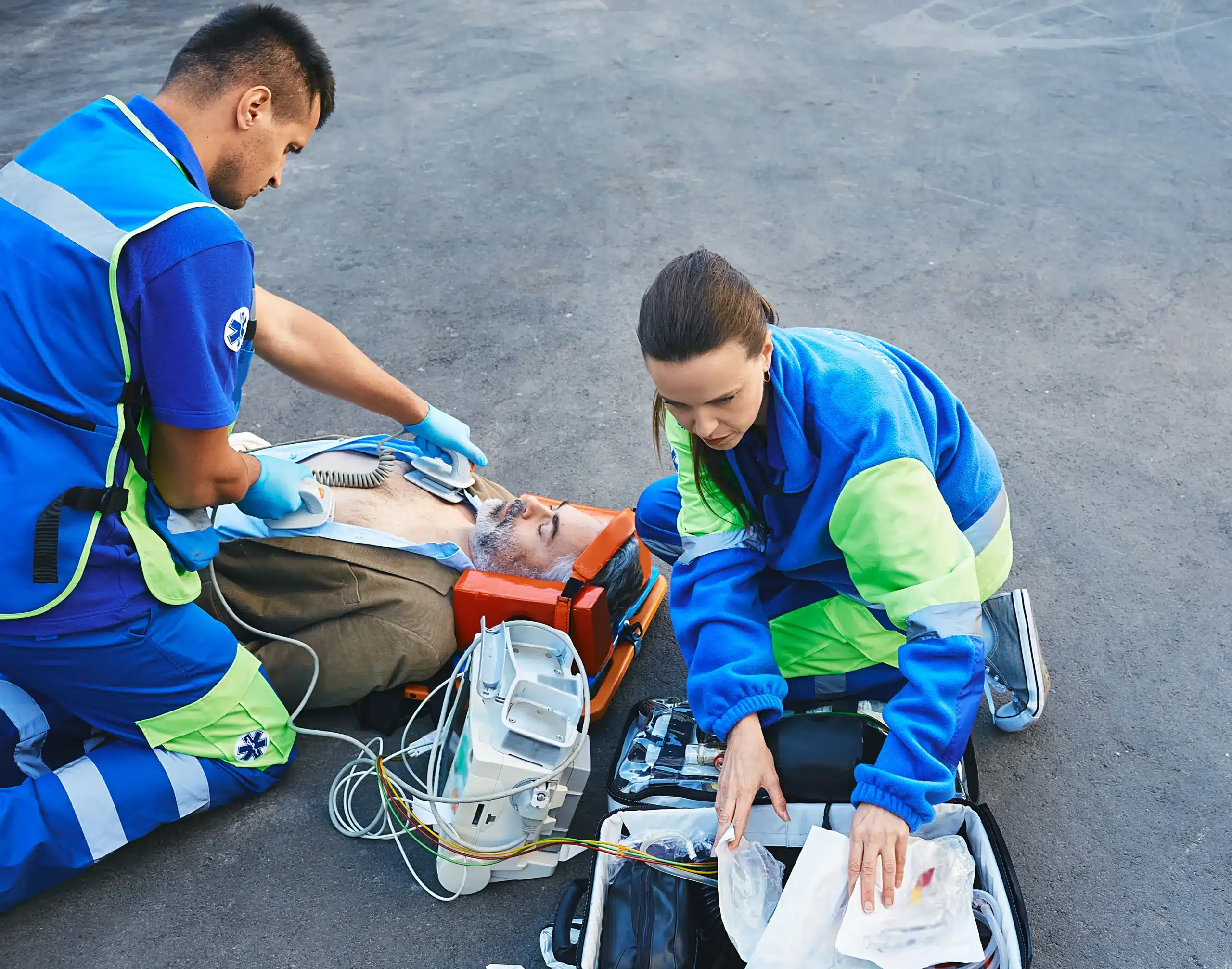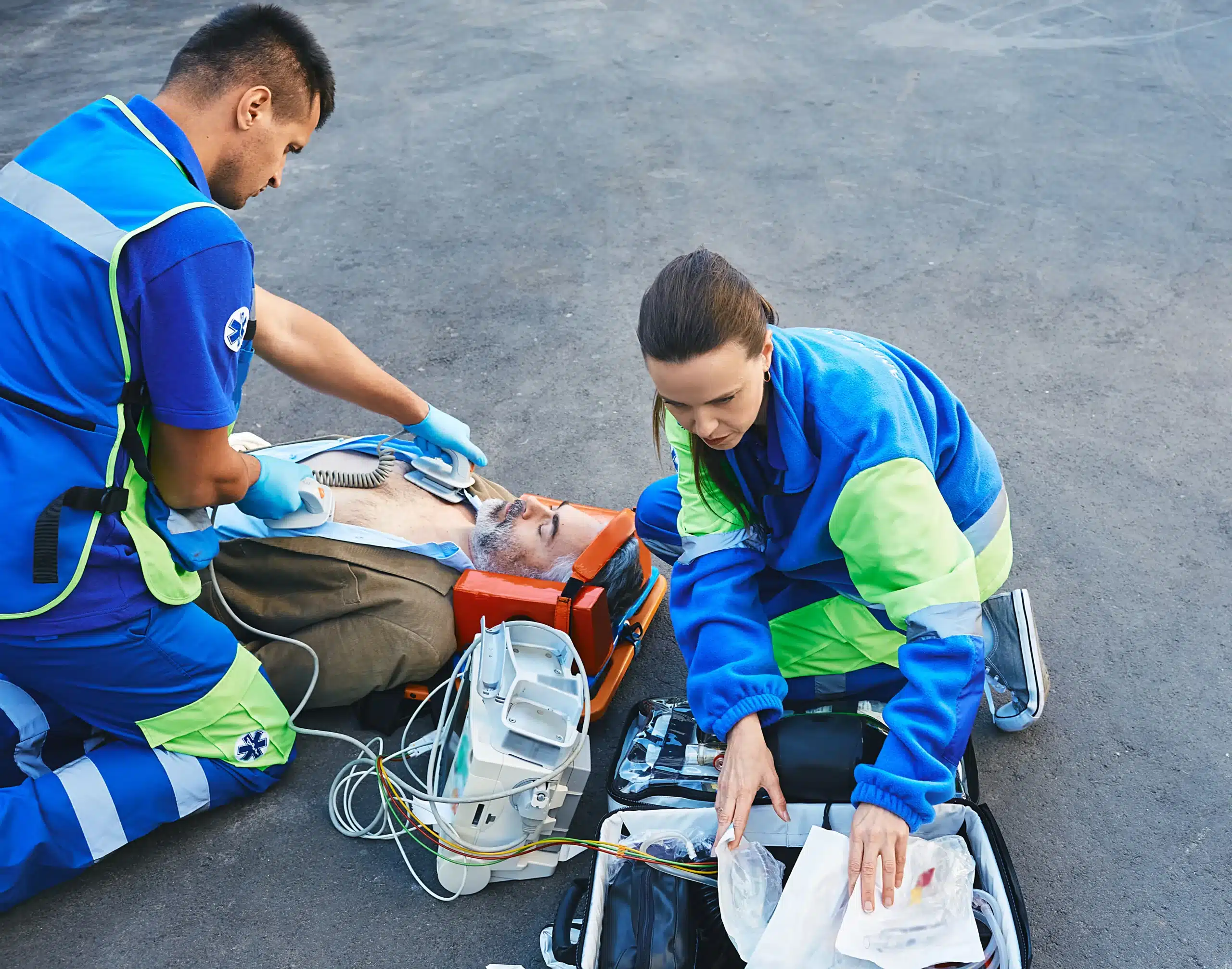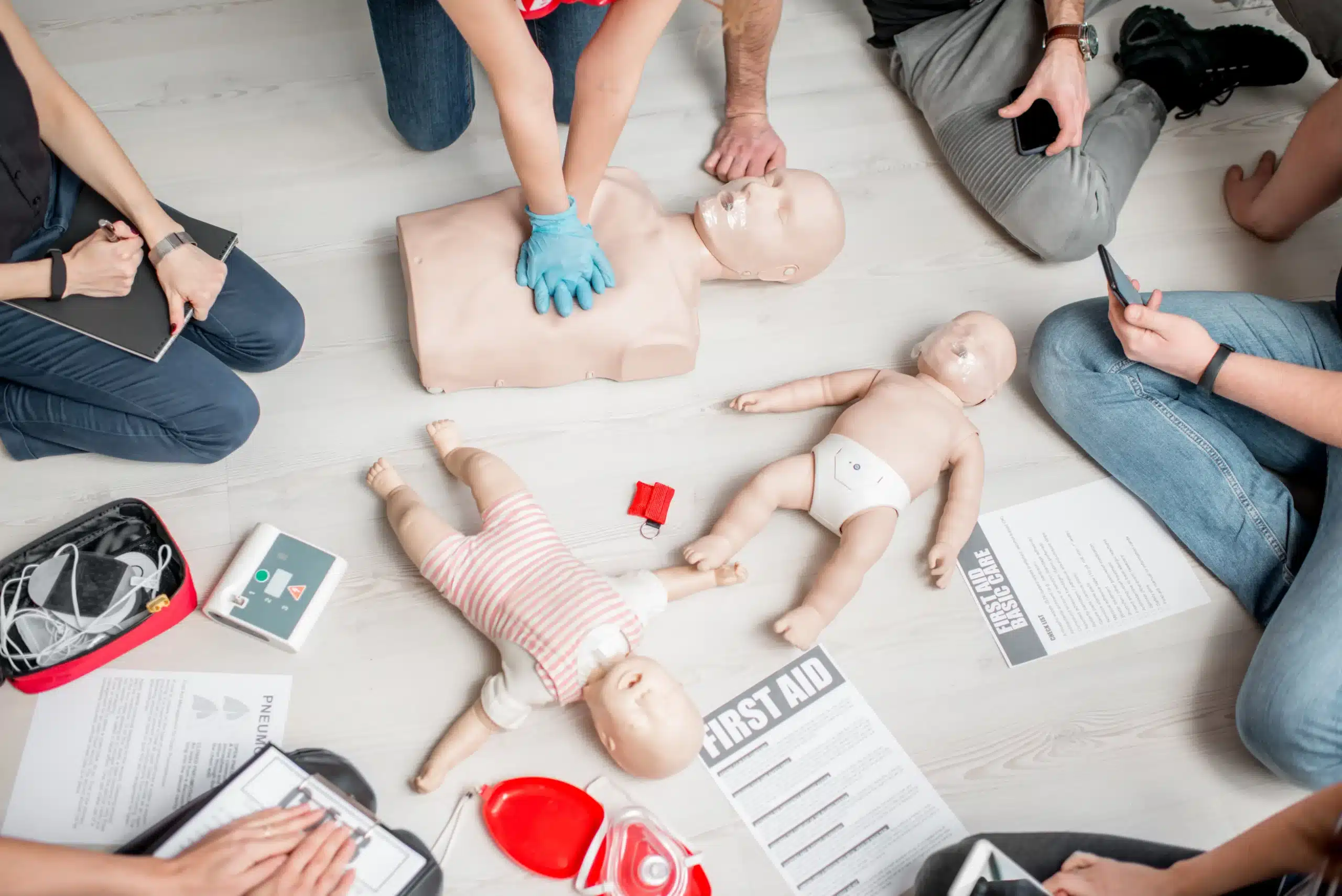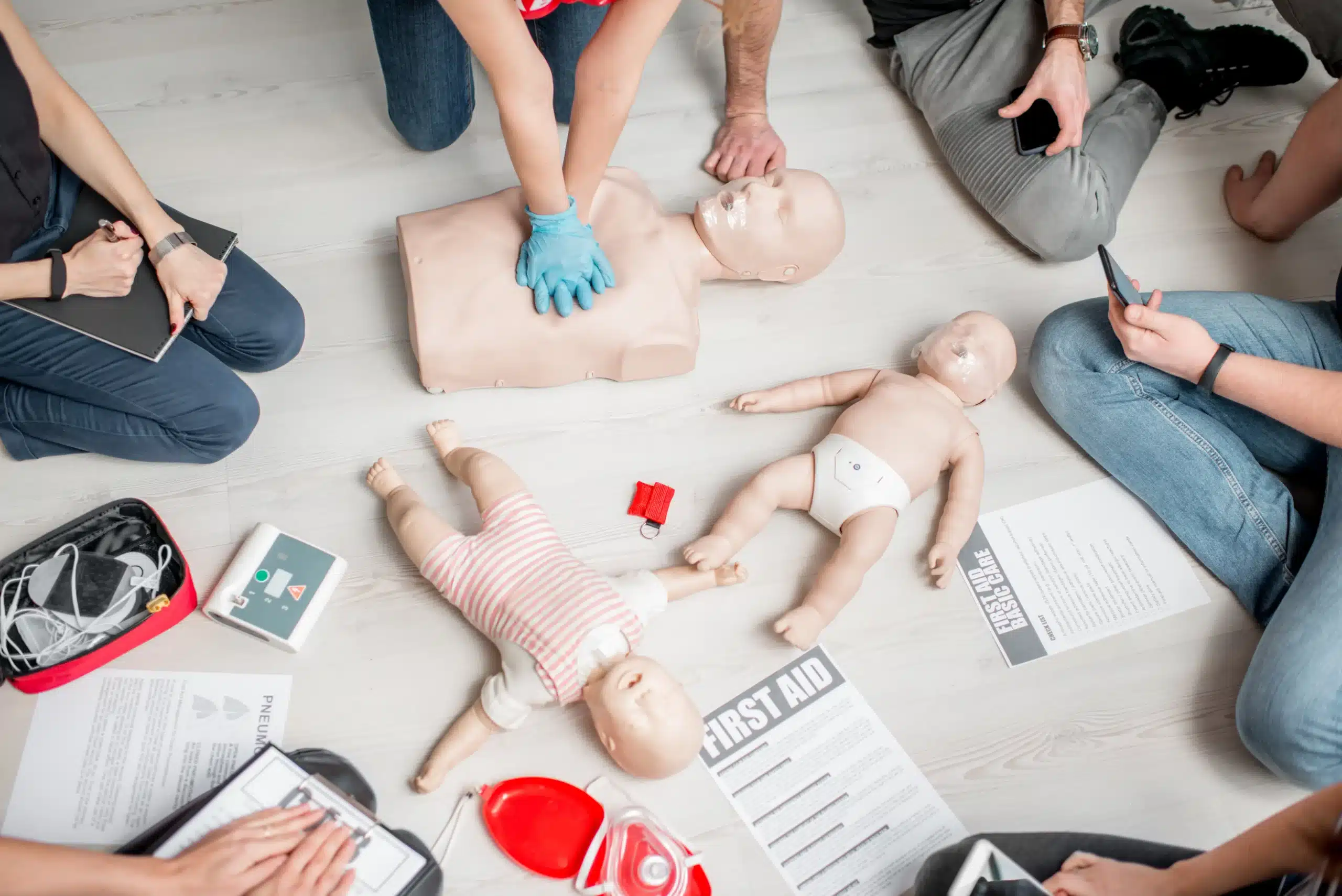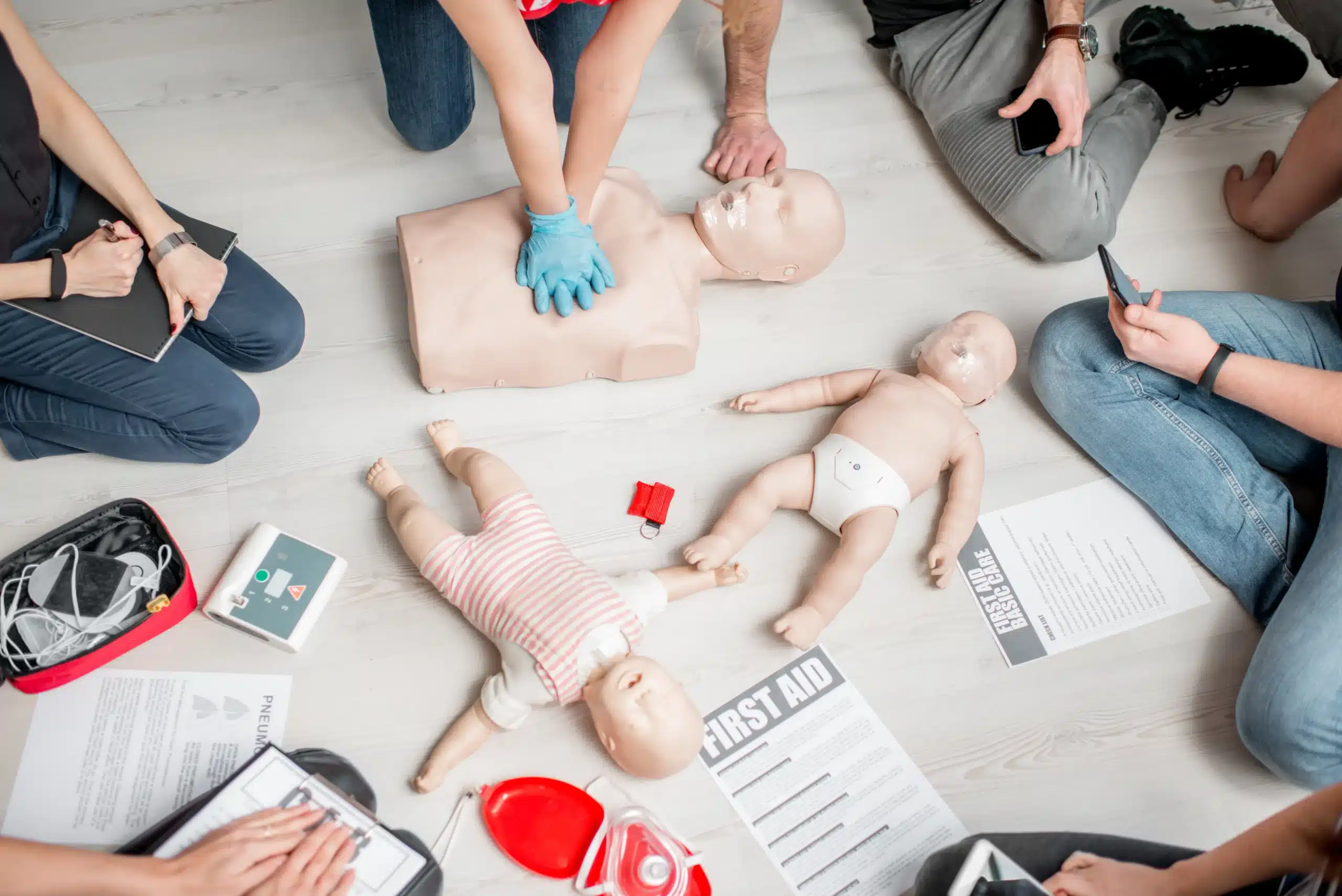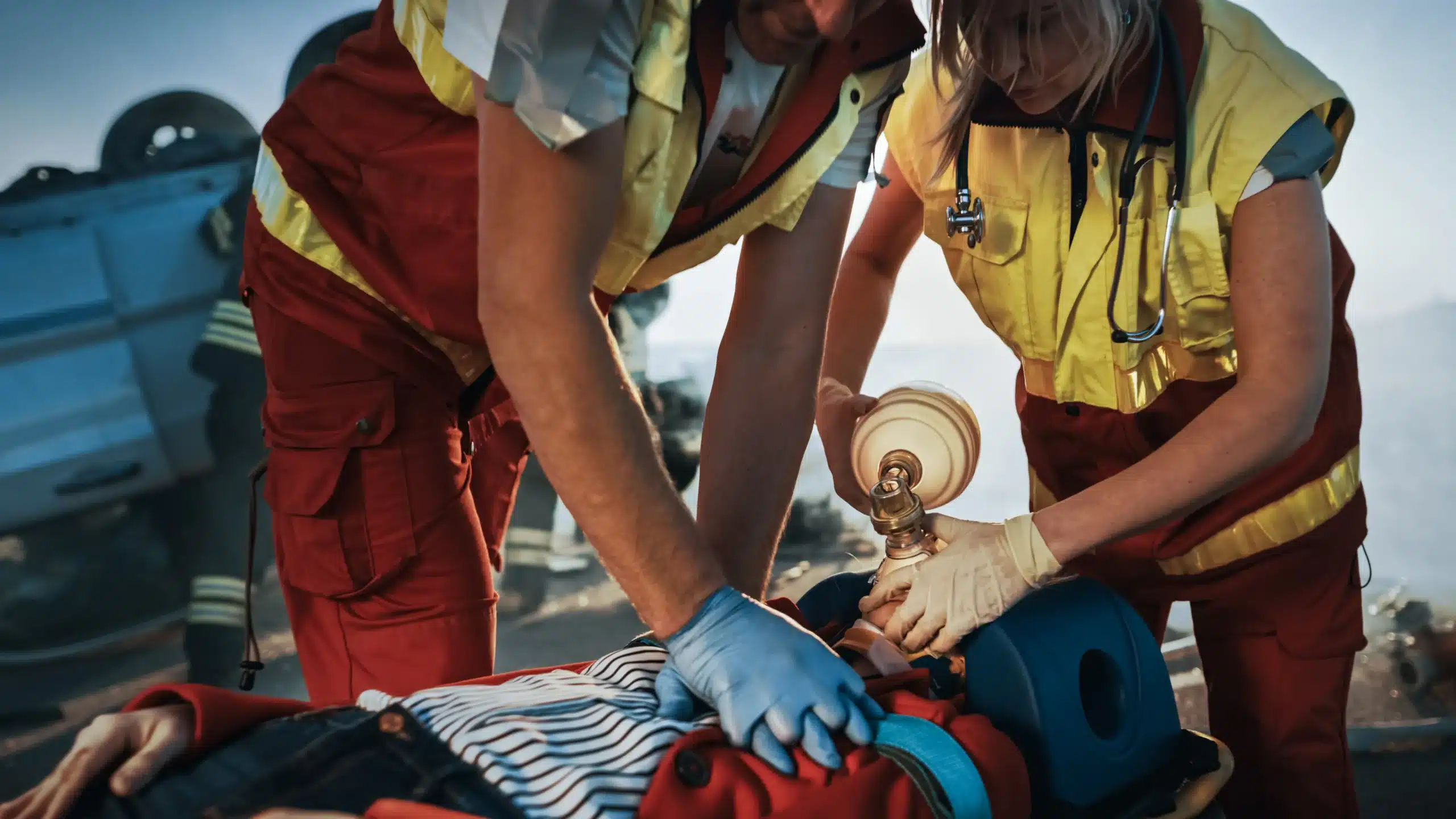Your BLS certification is more than just a piece of paper; it’s proof of your commitment to providing high-quality care and responding effectively in emergencies. Maintaining those skills is essential, which is why staying on top of your AHA BLS Renewal is so important. This guide is designed to simplify the renewal process, offering clear and actionable steps to help you find the best “AHA BLS Renewal near me” options, understand the costs involved, and choose the right course format for your needs. We’ll also cover the prerequisites and requirements, ensuring you’re fully prepared for a smooth and successful renewal experience.
Key Takeaways
- Stay current with lifesaving skills: Regularly renewing your BLS certification ensures you’re up-to-date on the latest AHA guidelines and techniques for providing effective CPR and other emergency care. This keeps you prepared and confident in responding to emergencies.
- Choose a provider that fits your needs: Consider factors like location, cost, course format (in-person, online, or hybrid), and reputation when selecting a BLS renewal provider. Look for AHA-certified training centers with experienced instructors and positive student feedback.
- Prepare in advance for a smooth renewal: Gather your current BLS card, select a course that aligns with your schedule and learning preferences, and register early to avoid last-minute stress. Planning ahead ensures a seamless and efficient renewal process.
What is AHA BLS Renewal?
AHA BLS Renewal is how healthcare providers and other certified professionals keep their Basic Life Support skills sharp. It’s simply the process of recertifying your BLS credentials through the American Heart Association (AHA), making sure you’re up-to-date on the latest life-saving procedures. This certification is essential for anyone who might need to perform CPR or other emergency care, from doctors and nurses to lifeguards, teachers, and other first responders. The AHA BLS certification is valid for two years. After that, you’ll need to renew to stay current with the latest guidelines and techniques. If your certification has recently lapsed, you may still be able to renew. Check with your local training center for their specific guidelines.
Renewal usually involves a shorter, refresher course focusing on key skills and any updates to the protocols. You’ll need a current (or recently expired) BLS certification to be eligible for the renewal course. One of the best parts? You often receive your updated certification card the same day you complete the course and pass the exam. Many providers offer both in-person and online options, making it easier to fit the training into your busy schedule. CPR Certified Trainer offers helpful information on choosing between a BLS provider versus a BLS renewal course.
Find the Best AHA BLS Renewal Providers Near You
Finding the right provider for your Basic Life Support (BLS) renewal is key to a smooth and valuable recertification experience. Here’s what to consider when searching for “AHA BLS Renewal near me”:
Safety Training Seminars in Walnut Creek
If you’re in the Walnut Creek, Concord, or Pleasant Hill area, Safety Training Seminars offers convenient and comprehensive AHA BLS renewal courses. As a woman-owned American Heart Association Training Center, they focus on providing high-quality instruction at affordable prices. They also offer other courses like ACLS, PALS, and First Aid, making them a one-stop shop for all your certification needs. Check out their low price guarantee for extra peace of mind.
Other Local Options
Beyond Safety Training Seminars, exploring other local providers is always a good idea. The American Heart Association website often lists certified training centers in your area. A quick search can reveal various options, including hospitals, community colleges, and private training organizations. Don’t forget to check if they offer the RQI program for skills maintenance if your workplace requires it. Expanding your search can help you find the best fit for your schedule and learning style.
Evaluate Provider Reputation and Reviews
Once you’ve compiled a list of potential providers, take the time to research their reputation. Online reviews can offer valuable insights into the quality of instruction, course materials, and overall experience. Look for providers with consistently positive feedback regarding instructor expertise and helpfulness. Also, confirm that the provider is accredited by a recognized organization like the American Heart Association. This ensures the course content aligns with current guidelines and your certification will be widely accepted. Prioritizing reputable providers sets you up for a successful renewal.
Choose the Right Course Format and Duration
Deciding on the right course format and duration depends on your learning style, schedule, and access to resources. Let’s break down the pros and cons of each option to help you make the best choice for your BLS renewal.
In-Person Classes: Hands-On Learning
In-person classes offer a structured learning environment with direct interaction with an instructor and other students. This format excels in providing hands-on practice, crucial for mastering the skills required for BLS certification. You’ll have the opportunity to ask questions in real-time, receive immediate feedback, and practice skills like CPR and using an AED in a controlled setting. If you thrive in a traditional classroom setting and value face-to-face instruction, in-person training might be your best bet. Our in-person classes at Safety Training Seminars in Walnut Creek provide this hands-on experience.
Online Options: Flexibility at Your Fingertips
Online BLS renewal courses offer unparalleled flexibility. You can learn at your own pace, anytime, anywhere, making them a convenient option for busy professionals, parents, or anyone with a packed schedule. These online courses often incorporate interactive elements, videos, and simulations to reinforce learning. While online courses offer convenience, it’s important to choose a reputable provider like the American Heart Association that aligns with the latest guidelines and offers a comprehensive curriculum. Online learning is ideal if you’re self-motivated and prefer to learn independently.
Hybrid Courses: The Best of Both Worlds
Hybrid courses combine the best of both worlds, offering the flexibility of online learning with the hands-on practice of in-person skills sessions. You can complete the theoretical portion of the course online at your convenience and then attend a shorter in-person session to demonstrate your skills and receive personalized feedback from an instructor. This format offers a balanced approach, catering to different learning styles and schedules. If you appreciate the convenience of online learning but also recognize the value of hands-on training, a hybrid course might be the perfect fit. Check with your local providers like Safety Training Seminars to see if they offer this blended learning option.
Understand AHA BLS Renewal Costs
Getting recertified shouldn’t break the bank. Understanding the typical costs associated with BLS renewal will help you budget effectively and find the best value.
Average Costs in the Walnut Creek Area
In the Walnut Creek area, BLS renewal typically costs around $70. This price generally covers the course materials, instruction, and certification processing. It’s a good idea to check with various providers, as prices can vary slightly. For example, some providers may offer a discounted “skills check” if you’re comfortable with the material and just need a refresher on the practical skills. You can compare prices at different training centers in your area to find the best fit for your budget.
Safety Training Seminars’ Pricing and Low Price Guarantee
Safety Training Seminars offers competitive pricing for AHA BLS renewal courses, along with a low-price guarantee. This commitment to affordability makes it easier to prioritize your training without compromising your budget. They provide high-quality instruction and ensure you receive the same AHA certification as other providers, often at a more accessible price. Check their website for the most up-to-date pricing and course schedules.
Explore Discounts and Package Deals
Many training centers offer discounts and package deals, so it’s worth exploring these options to maximize your savings. Look for early bird discounts, group registration deals, or bundled packages that combine BLS renewal with other certifications like ACLS or PALS. Some providers also offer discounts for healthcare students, educators, or members of professional organizations. Doing a little research can help you find the best deal.
Prepare for Your AHA BLS Renewal: Prerequisites and Requirements
Getting ready for your BLS renewal is straightforward if you know what to expect and gather the necessary information beforehand. Here’s a breakdown to help you prepare:
Current Certification Status
First things first, your BLS certification is valid for two years. There’s no grace period after it expires, so you’ll need to renew it completely. This means you should plan and schedule your renewal course well in advance. Don’t wait until the last minute! Keeping your certification current is essential for maintaining your qualifications and ensuring you’re always ready to respond to emergencies.
Essential Documentation
Before starting the renewal process, gather your essential documents. You’ll need your current, valid BLS provider card to prove your existing certification. Make sure you also know where to find your AHA BLS Renewal course completion card. Since the renewal course builds upon existing knowledge and skills, verifying your current certification is key.
Additional Preparation Steps
To avoid any hiccups, renew your BLS certification before it expires. This prevents you from having to retake the entire course, saving you time and effort. Check the specific requirements of the certifying organization, such as the American Heart Association, to ensure you meet all the criteria. For any questions or concerns about the renewal process, reach out to your chosen training center. Safety Training Seminars offers customer service support to guide you through the steps. Being prepared and informed will make your renewal process smooth and stress-free.
What Happens During an AHA BLS Renewal Course?
Getting recertified in BLS is straightforward, designed to refresh your essential lifesaving skills. Here’s what you can expect:
Course Content and Structure
AHA BLS Renewal courses cover core concepts and techniques like high-quality CPR for adults, children, and infants, and effective ventilation. You’ll also review the AHA Chain of Survival, emphasizing early recognition and response to emergencies. Courses typically take about three hours, including skills practice and testing, allowing for a comprehensive review and hands-on practice. The American Heart Association offers more details on BLS course options.
Skills Assessment and Practice
Hands-on practice is critical for BLS renewal. You’ll demonstrate your skills in key areas like chest compressions, rescue breaths, and AED use. Instructors provide feedback and guidance to refine your technique and build confidence. A written exam and skills evaluation assess your understanding and BLS proficiency. Sav-A-Heart provides a helpful overview of the renewal process.
Certification Process and Validity
After successfully completing the course requirements, including the written exam and skills check, you’ll receive your updated BLS Provider Course Completion Card, valid for two years. This card confirms your current knowledge and skills in basic life support. The American Heart Association offers more information on BLS certification. Keep your card safe and mark your calendar for your next renewal!
Select the Right AHA BLS Renewal Provider
Choosing the right provider for your BLS renewal is crucial for a positive and effective learning experience. Here’s a breakdown of key factors to consider:
Compare Local Options
Start by researching various BLS renewal providers in your area. Look beyond just proximity and consider factors like class size, instructor experience, and overall reputation. Smaller classes often allow for more personalized instruction and feedback. A provider’s reputation speaks volumes about the quality of training they offer. For those in and around Walnut Creek, Concord, and Pleasant Hill, Safety Training Seminars is a trusted option known for its comprehensive courses and experienced instructors. Checking online reviews can also give you valuable insights from past students. Prioritizing a provider’s reputation, instructor qualifications, and convenient scheduling options ensures you receive high-quality training that fits your needs.
Assess Your Schedule and Learning Preferences
Think about your learning style and how it aligns with different course formats. In-person classes provide hands-on practice and direct interaction with instructors, which can be beneficial for those who prefer a traditional classroom setting. If your schedule is tight or you prefer learning at your own pace, online courses offer more flexibility. The American Heart Association offers comprehensive online BLS renewal classes, which are structured to provide both theoretical knowledge and practical skills enhancement. Consider whether you thrive in a structured environment or prefer the freedom to learn anytime, anywhere. Some providers also offer hybrid courses, combining online learning with in-person skills sessions. This blended approach can provide a good balance between flexibility and hands-on training.
Consider Long-Term Career Benefits
BLS renewal isn’t just about checking a box; it’s an investment in your career. A provider who emphasizes the latest guidelines and best practices can better equip you for real-world scenarios. Look for courses that go beyond the basics and offer insights into current protocols and advancements in resuscitation techniques. Staying updated with guidelines, practicing regularly, attending refresher courses, understanding changes in protocols, and maintaining documentation are essential components of successful BLS renewal. Choosing a reputable provider can enhance your professional credibility and demonstrate your commitment to providing high-quality care. This can be especially valuable for healthcare professionals, where up-to-date BLS certification is often a requirement for employment and career advancement.
Related Articles
- BLS Renewal Near Me: Find the Right Course for You – Walnut Creek CPR Classes
- BLS Renewal in Concord: Your Complete Guide – Walnut Creek CPR Classes
- BLS Recertification Near Me: A Complete Guide – Walnut Creek CPR Classes
- ACLS Renewal in Pleasant Hill: Your Complete Guide – Walnut Creek CPR Classes
- ACLS Renewal Walnut Creek: Your Complete Guide – Walnut Creek CPR Classes
Frequently Asked Questions
How long is my BLS certification valid for? Your BLS certification through the American Heart Association is valid for two years. It’s important to renew before it expires to maintain your credentials and stay up-to-date on the latest life-saving techniques.
What if my BLS certification has already expired? If your certification has lapsed, you’ll likely need to take the full BLS provider course again rather than a renewal course. It’s always best to renew before your certification expires to save time and money. Check with your local training center for their specific policies.
What’s the difference between an in-person and online BLS renewal course? In-person courses offer hands-on training and direct interaction with an instructor, while online courses provide flexibility and self-paced learning. Both formats cover the same core material and result in the same AHA certification. Consider your learning style and schedule when choosing the best option for you. Some providers also offer hybrid courses that combine online learning with in-person skills sessions.
How much does BLS renewal typically cost? The cost of BLS renewal varies depending on the provider and location. In the Walnut Creek area, it typically ranges around $70. Be sure to compare prices from different providers and look for potential discounts or package deals. Safety Training Seminars offers a low-price guarantee, making it a budget-friendly option.
How can I find AHA-certified BLS renewal providers near me? You can easily find certified training centers near you by searching online or checking the American Heart Association website. Look for providers with positive reviews, experienced instructors, and convenient course schedules. Consider factors like class size and whether they offer additional certifications like ACLS or PALS.
